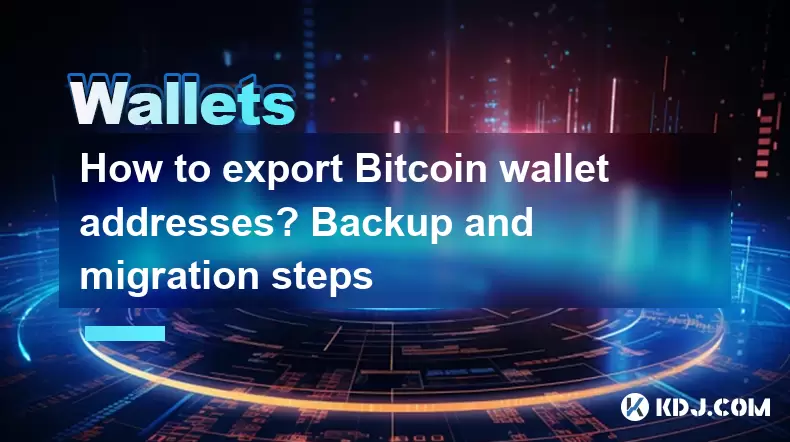-
 Bitcoin
Bitcoin $115000
0.12% -
 Ethereum
Ethereum $3701
4.50% -
 XRP
XRP $3.081
2.99% -
 Tether USDt
Tether USDt $0.0000
-0.01% -
 BNB
BNB $767.9
1.45% -
 Solana
Solana $169.5
3.13% -
 USDC
USDC $0.9999
0.01% -
 Dogecoin
Dogecoin $0.2106
4.30% -
 TRON
TRON $0.3334
1.62% -
 Cardano
Cardano $0.7564
2.54% -
 Stellar
Stellar $0.4165
0.76% -
 Hyperliquid
Hyperliquid $38.75
0.25% -
 Sui
Sui $3.593
3.00% -
 Chainlink
Chainlink $17.08
3.59% -
 Bitcoin Cash
Bitcoin Cash $573.6
4.35% -
 Hedera
Hedera $0.2508
-0.84% -
 Avalanche
Avalanche $23.07
6.46% -
 Ethena USDe
Ethena USDe $1.001
-0.02% -
 Litecoin
Litecoin $120.8
8.17% -
 UNUS SED LEO
UNUS SED LEO $8.943
-0.32% -
 Toncoin
Toncoin $3.400
-5.60% -
 Shiba Inu
Shiba Inu $0.00001255
1.54% -
 Uniswap
Uniswap $9.908
6.32% -
 Polkadot
Polkadot $3.718
2.10% -
 Monero
Monero $303.0
-0.74% -
 Dai
Dai $0.9999
-0.02% -
 Bitget Token
Bitget Token $4.392
0.91% -
 Cronos
Cronos $0.1403
6.31% -
 Pepe
Pepe $0.00001076
1.13% -
 Aave
Aave $267.2
1.80%
How to export Bitcoin wallet addresses? Backup and migration steps
Exporting Bitcoin wallet addresses involves copying public keys for secure use elsewhere, requiring careful steps to ensure the safety of your funds.
May 13, 2025 at 02:14 pm

Understanding Bitcoin Wallet Addresses
Before diving into the process of exporting, backing up, and migrating Bitcoin wallet addresses, it's essential to understand what a Bitcoin wallet address is. A Bitcoin wallet address is a unique alphanumeric string that serves as a public key, allowing you to receive Bitcoin. Each address is generated from your wallet's private key, ensuring secure transactions. When you export your wallet address, you are essentially copying this public key for use elsewhere.
Preparing for Export: Safety Measures
Exporting your Bitcoin wallet addresses requires careful handling to ensure the security of your funds. Before you begin, make sure your computer is free from malware and you are using a secure internet connection. It's also a good idea to disconnect from the internet during the export process to minimize the risk of hacking attempts. Additionally, consider using a hardware wallet for added security, as these devices store your private keys offline.
Exporting Bitcoin Wallet Addresses: Step-by-Step Guide
To export your Bitcoin wallet addresses, follow these detailed steps:
- Open your Bitcoin wallet software. Depending on whether you are using a software wallet like Electrum or a hardware wallet like Ledger, the interface may vary, but the principle remains the same.
- Navigate to the 'Receive' or 'Addresses' section. This is where you will find a list of all the addresses associated with your wallet.
- Select the address you wish to export. If you want to export multiple addresses, you may need to repeat the process for each one.
- Copy the address. Most wallet software will have a button or an option to copy the address to your clipboard. Right-click on the address and select 'Copy' or click on the 'Copy to Clipboard' button.
- Paste the address into a secure document or text file. You can use a text editor like Notepad on Windows or TextEdit on Mac. Ensure that this file is saved in a secure location, such as an encrypted folder or a USB drive.
- Verify the address. Double-check that the address you have copied and pasted is correct. A single mistake in the address can result in lost funds.
Backing Up Your Bitcoin Wallet
Backing up your Bitcoin wallet is crucial for protecting your funds in case of hardware failure or loss of access. Here's how to back up your wallet:
- Create a backup of your wallet file. Most Bitcoin wallet software allows you to export a wallet file, which contains all your private keys and addresses. Look for an option like 'Backup Wallet' or 'Export Wallet' in your wallet's settings.
- Save the wallet file in a secure location. Similar to the exported addresses, store the wallet file in an encrypted folder or a secure external drive. You can also print out the wallet file as a paper backup.
- Secure your backup with a strong password. If your wallet software supports it, encrypt the wallet file with a strong password. This adds an extra layer of security in case the backup falls into the wrong hands.
- Store multiple copies of your backup. Keep at least two copies of your backup in different secure locations, such as a safe deposit box or a secure cloud storage service with encryption.
Migrating Your Bitcoin Wallet Addresses
Migrating your Bitcoin wallet addresses to a new wallet involves transferring your funds and setting up the new wallet with your existing addresses. Here's how to do it:
- Set up your new Bitcoin wallet. Choose a reputable wallet software or hardware wallet and follow the manufacturer's instructions to set it up.
- Import your existing wallet file into the new wallet. If your new wallet supports it, you can import your backed-up wallet file. Look for an option like 'Import Wallet' or 'Restore Wallet' in the new wallet's settings.
- Manually add your addresses if needed. If your new wallet does not support importing the wallet file, you can manually add your addresses. Navigate to the 'Receive' or 'Addresses' section of your new wallet and add each address one by one.
- Transfer your funds to the new wallet. Once your addresses are set up in the new wallet, you can transfer your Bitcoin from your old wallet to the new one. Make sure to send a small test transaction first to verify that everything is working correctly.
- Verify the migration. After transferring your funds, double-check that all your Bitcoin has been successfully moved to the new wallet. You can do this by comparing the balances in both wallets.
Ensuring the Security of Your Migrated Wallet
After migrating your Bitcoin wallet addresses, it's crucial to ensure the security of your new setup. Change your wallet's password and enable two-factor authentication if available. Regularly update your wallet software to protect against vulnerabilities. Additionally, consider using a new hardware wallet if you are migrating from a software wallet to enhance your security further.
Frequently Asked Questions
Q: Can I export my Bitcoin wallet addresses without compromising my private keys?
A: Yes, exporting your Bitcoin wallet addresses only involves copying your public keys, which are safe to share. Your private keys remain secure within your wallet and are not exposed during the export process.
Q: What should I do if I lose my wallet backup?
A: If you lose your wallet backup and do not have access to your private keys, you will lose access to your Bitcoin. It's essential to keep multiple secure backups and store them in different locations to mitigate this risk.
Q: Is it possible to migrate my Bitcoin wallet addresses to multiple new wallets?
A: Yes, you can migrate your Bitcoin wallet addresses to multiple new wallets by repeating the migration process for each new wallet. However, ensure that you manage your funds carefully to avoid confusion and potential loss.
Q: How often should I back up my Bitcoin wallet?
A: It's a good practice to back up your Bitcoin wallet every time you create a new address or make significant changes to your wallet. Regular backups ensure that you have the most up-to-date information in case of an emergency.
Disclaimer:info@kdj.com
The information provided is not trading advice. kdj.com does not assume any responsibility for any investments made based on the information provided in this article. Cryptocurrencies are highly volatile and it is highly recommended that you invest with caution after thorough research!
If you believe that the content used on this website infringes your copyright, please contact us immediately (info@kdj.com) and we will delete it promptly.
- Bitcoin, Fed Rate Cut, and Crypto Stocks: A New Yorker's Take
- 2025-08-05 14:50:12
- Police, Cryptocurrency, Bitcoin Windfall: Unexpected Gains and Cautionary Tales
- 2025-08-05 15:30:12
- MAGACOIN: The Next Shiba Inu ROI? A Crypto Presale Deep Dive
- 2025-08-05 15:30:12
- Bitcoin, Kiyosaki, and the August Curse: Will History Repeat?
- 2025-08-05 14:50:12
- Crypto Airdrops: Your August 2025 Guide to Free Tokens & Opportunities
- 2025-08-05 13:45:13
- Luxury Dining Reimagined: St. Regis Singapore & Marriott's Culinary Celebration
- 2025-08-05 13:45:13
Related knowledge

How to add TRC20 token to Trust Wallet?
Aug 04,2025 at 11:35am
Understanding TRC20 and Trust Wallet CompatibilityTrust Wallet is a widely used cryptocurrency wallet that supports multiple blockchain networks, incl...

What is a watch-only wallet in Trust Wallet?
Aug 02,2025 at 03:36am
Understanding the Concept of a Watch-Only WalletA watch-only wallet in Trust Wallet allows users to monitor a cryptocurrency address without having ac...

Why can't I connect my Trust Wallet to a DApp?
Aug 04,2025 at 12:00pm
Understanding DApp Connectivity and Trust WalletConnecting your Trust Wallet to a decentralized application (DApp) is a common process in the cryptocu...

How to fix a stuck pending transaction in Trust Wallet?
Aug 03,2025 at 06:14am
Understanding Why Transactions Get Stuck in Trust WalletWhen using Trust Wallet, users may occasionally encounter a pending transaction that appears t...

What is a multi-coin wallet in Trust Wallet?
Aug 03,2025 at 04:43am
Understanding Multi-Coin Wallets in Trust WalletA multi-coin wallet in Trust Wallet refers to a digital wallet that supports multiple cryptocurrencies...

How to switch between networks in Trust Wallet?
Aug 02,2025 at 12:36pm
Understanding Network Switching in Trust WalletSwitching between networks in Trust Wallet allows users to manage assets across different blockchains s...

How to add TRC20 token to Trust Wallet?
Aug 04,2025 at 11:35am
Understanding TRC20 and Trust Wallet CompatibilityTrust Wallet is a widely used cryptocurrency wallet that supports multiple blockchain networks, incl...

What is a watch-only wallet in Trust Wallet?
Aug 02,2025 at 03:36am
Understanding the Concept of a Watch-Only WalletA watch-only wallet in Trust Wallet allows users to monitor a cryptocurrency address without having ac...

Why can't I connect my Trust Wallet to a DApp?
Aug 04,2025 at 12:00pm
Understanding DApp Connectivity and Trust WalletConnecting your Trust Wallet to a decentralized application (DApp) is a common process in the cryptocu...

How to fix a stuck pending transaction in Trust Wallet?
Aug 03,2025 at 06:14am
Understanding Why Transactions Get Stuck in Trust WalletWhen using Trust Wallet, users may occasionally encounter a pending transaction that appears t...

What is a multi-coin wallet in Trust Wallet?
Aug 03,2025 at 04:43am
Understanding Multi-Coin Wallets in Trust WalletA multi-coin wallet in Trust Wallet refers to a digital wallet that supports multiple cryptocurrencies...

How to switch between networks in Trust Wallet?
Aug 02,2025 at 12:36pm
Understanding Network Switching in Trust WalletSwitching between networks in Trust Wallet allows users to manage assets across different blockchains s...
See all articles

























































































